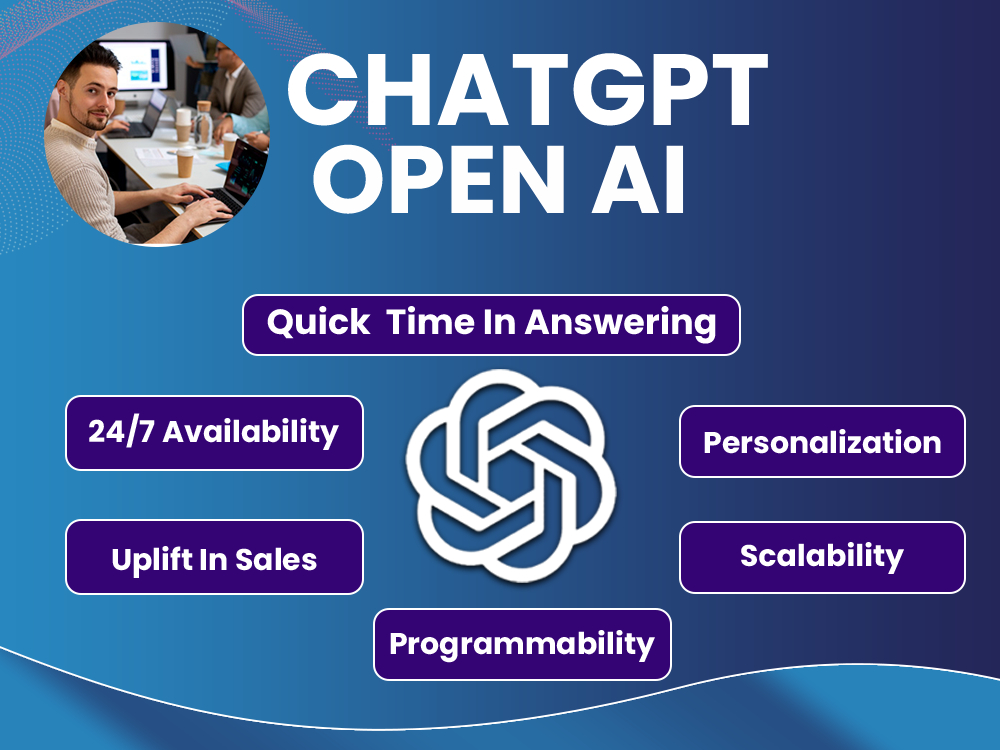Artificial intelligence (AI) has emerged as a groundbreaking technology with the potential to revolutionize various aspects of our lives. Its ability to analyze vast amounts of data and perform complex tasks has paved the way for remarkable advancements. In this article, we delve into five ways AI could improve the world, envisioning a future where we can cure diseases, stabilize our climate, and eradicate poverty. Let’s explore the transformative power of AI and its potential for a brighter future.
"Five Ways AI Could Improve the World"
Advancing Medical Research and Disease Cure
In the field of medicine, AI presents unprecedented potential to accelerate research and improve patient care. By harnessing AI algorithms and machine learning, scientists can analyse vast amounts of medical data, leading to breakthroughs in disease prevention, diagnosis, and treatment. AI-powered systems can identify patterns and predict outcomes with greater accuracy, enabling early detection of diseases and personalised treatment plans. Additionally, AI can aid in the development of new drugs by streamlining the drug discovery process and reducing time and costs. By leveraging AI, we can move closer to the realisation of a world where all diseases can be cured.
Five Ways AI Could Improve the World: ‘We Can Cure All Diseases, Stabilize Our Climate, Halt Poverty’
this video created by BBC Ideas.
AI-driven Diagnostics
AI algorithms can analyze medical imaging scans, such as X-rays and MRIs, with remarkable precision. By quickly detecting anomalies and identifying potential health risks, AI-powered diagnostics can enable early intervention and improve patient outcomes. This technology holds the promise of minimizing misdiagnoses and reducing the burden on healthcare systems worldwide.
Personalized Medicine
Through AI, medical professionals can develop personalized treatment plans tailored to each patient’s unique genetic makeup, lifestyle, and medical history. By considering individual variations, AI-driven systems can optimize drug dosage, minimize side effects, and improve treatment effectiveness. This personalized approach has the potential to revolutionize healthcare and transform patient outcomes.
Mitigating Climate Change
Climate change poses a significant threat to our planet and future generations. AI can play a pivotal role in mitigating this crisis by enabling more accurate climate predictions, optimizing resource management, and fostering sustainable practices.
Climate Modeling and Prediction
AI algorithms can process massive amounts of climate data and simulate complex climate models. By analyzing historical data, AI systems can make accurate predictions about future climate patterns, helping scientists and policymakers make informed decisions to mitigate the effects of climate change. This technology empowers us to take proactive measures and develop effective strategies to stabilize our climate.
Energy Optimization and Efficiency
AI can optimize energy consumption and promote renewable energy sources. By analyzing energy usage patterns and identifying inefficiencies, AI-powered systems can recommend strategies to reduce carbon footprints and optimize resource allocation. Additionally, AI can enhance the integration and management of renewable energy grids, enabling a smooth transition towards a sustainable energy future.
Empowering Economic Development and Poverty Alleviation
AI has the potential to uplift marginalized communities and alleviate poverty by enhancing economic development and creating opportunities for inclusive growth.
Access to Education and Skills Development
AI-powered education platforms can provide affordable and accessible learning opportunities to individuals worldwide. By leveraging AI technologies, disadvantaged communities can access quality education, acquire new skills, and increase their employability. This empowerment can break the cycle of poverty and create pathways for socio-economic progress.
Job Creation and Economic Growth
Contrary to concerns about job displacement, AI can lead to the creation of new jobs and industries. AI technologies can augment human capabilities, automating repetitive tasks and freeing up time for higher-value work. This shift can foster innovation, drive economic growth, and create employment opportunities across various sectors.
Enhancing Disaster Management and Response
In times of crises and natural disasters, AI can significantly improve disaster management and response efforts, saving lives and minimizing damages.
Early Warning Systems
AI-powered early warning systems can analyze real-time data from various sources, such as sensors and satellites, to detect and predict disasters. By providing timely alerts, these systems enable proactive evacuation measures and facilitate efficient disaster response, reducing the impact on affected communities.
Rescue and Relief Operations
AI technologies, such as drones and autonomous vehicles, can support rescue and relief operations in disaster-stricken areas. Drones equipped with AI algorithms can quickly survey affected regions, assess damages, and identify survivors, expediting search and rescue efforts. Furthermore, AI-powered logistics systems can optimize resource allocation and aid in the efficient distribution of essential supplies to affected populations.
Improving Accessibility and Inclusivity
AI holds the potential to break barriers and create a more inclusive world by improving accessibility and enhancing the lives of individuals with disabilities.
Assistive Technologies
AI-powered assistive technologies, such as smart prosthetics and speech recognition systems, can significantly enhance the quality of life for individuals with disabilities. These technologies enable greater mobility, communication, and independence, empowering individuals to participate more fully in society.
Accessibility in Digital Spaces
AI can help bridge the digital divide by making digital spaces more accessible to individuals with disabilities. Through AI-driven algorithms, websites and applications can be optimized for screen readers, voice commands, and other assistive technologies, ensuring equal access to information and opportunities.
"Conclusion"
Artificial Intelligence has the power to revolutionize our world and address some of the most pressing challenges we face. By harnessing AI’s capabilities, we can advance medical research, cure diseases, stabilize our climate, alleviate poverty, enhance disaster management, and improve accessibility for all. However, it is essential to approach AI development and implementation with responsibility, ensuring ethical considerations, data privacy, and equitable access. As we embrace the potential of AI, we must also prioritize the well-being and inclusivity of all individuals. With careful planning and collaboration, we can create a future where AI truly improves the world for everyone.
============================================
this content created by theguardian.


